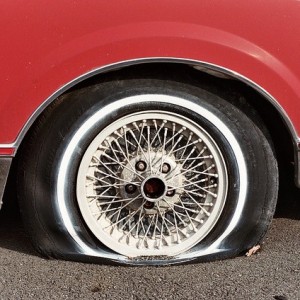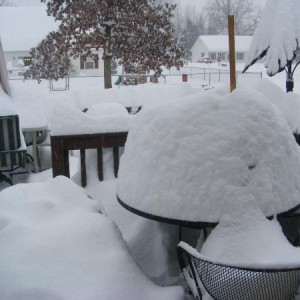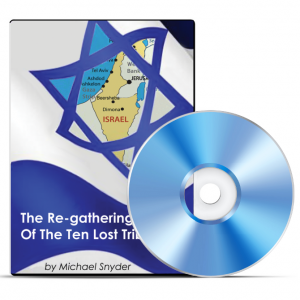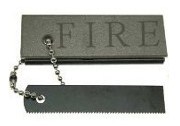|
|

Guest Post, Lee Flynn
When you are wanting to learn how to survive in the wild, there are some television shows that can help to teach you various survival techniques. By watching these types of shows you can gain a general understanding of what it could take mentally and physically should you find yourself in a survival-type situation. They teach you all sorts of skills, from fire-building to which is best to use, 9mm ammo or buck shot. Additionally, the shows provide information about food survival skills and food storage. The television shows feature rugged hosts including Bear Grylls, Cody Lundin, and Joseph Teti. The skills you learn are basic skills for surviving and different scenarios are played out for you to observe throughout the shows.
On a few of these shows there are disclaimers informing the viewers of the fact that some situations are set up by the producers to the hosts to further inform the viewer of a handy survival tactic. This list contains some of the better and more informative of the survival shows.
Survivorman
The creators of the hit (Read more....) […]

Guest Post Lee Flynn
The polar vortex has got everyone talking about cold weather. But while we are exclaiming about the ridiculously low temperatures and naming things “polar vortex,” there are plenty of people who are right in the thick of some of the most extreme weather the world has seen in decades. And though there have been some fatalities as a result of the cold weather, there is a far more common occurrence of people being stranded in their vehicles for days at a time. In these sorts of situations it is difficult to survive, but if you are properly prepared, it can be done. Here are some of the most important things for you to keep in your car in case of emergencies this winter.
Food
If you are going to be stuck in your car for 12 or more hours, there is one thing for which you will be grateful above all else: food. And even if it is not winter, storing emergency food should be a top priority for any car owner. Remember to store things that can last for a long (Read more....) […]
 A little preemptive planning turns car trouble from your worst nightmare to a minor inconvenience. If your vehicle blows a tire, runs out of gas or loses a battery charge, don’t panic. There are simple steps you can take to keep your car alive, on the road and away from the curb. A little preemptive planning turns car trouble from your worst nightmare to a minor inconvenience. If your vehicle blows a tire, runs out of gas or loses a battery charge, don’t panic. There are simple steps you can take to keep your car alive, on the road and away from the curb.
Roadside Assistance
If your car is new or you purchased an extended warranty or service plan, it probably included some type of roadside assistance. That typically consists of services like towing, battery and tire replacements, lockout assistance and so on. If your car is older or out of warranty, there are a few places you can still sign up for service. Most insurance companies offer it as an add-on to your coverage, but make sure you know exactly what you’re paying for since each company varies in offering.
Another option is a company like AAA. For $55 per year, they offer the same services and partner with different service centers across the country, making costs a bit lower if you need to have work done once you’re towed there. If you prefer your new wheels to come from other retailers such as Continental tires, AAA will still (Read more....) […]
 By SurvivingSurvivalism.com By SurvivingSurvivalism.com
We know that waiting till the last second is not a good idea, but for some it is the only option. So we have taken three possible average scenarios and broken them down for you. All scenarios will include a family of 4 – Mom, Dad and two kids under high school age – living in the suburbs of a megaplex city…
Scenario #1
1. You have a few cases of water
2. You have some freeze-dried storage food, maybe a 30 day supply.
3. You have some sleeping bags and some basic camping supplies.
4. You have a general idea of the area to which you want to go.
5. You think maybe something might happen in which case you could need to get your family out of the city.
6. All supplies are in the garage, ready to load into your minivan should the need arise.
You live in a suburban area of a mexaplex city – first and foremost, where (Read more....) […]
 Authored By J Vanne Authored By J Vanne
British Columbia
The goal of examining different Canadian regions for you is two-fold: a.) to look at regions that might be a good locale in a slow, grinding economic downturn, and b.) examine areas the might be suitable for a more serious societal and/or economic breakdown (the so-called “zombie apocalypse”). In other words, the scope of this article is to try to find areas that will be acceptable if the powers that be are able to somewhat “kick the economic can down the road” for a few more years, while at the same time providing information for your consideration in the event of a much more serious apocalypse of various flavours. This means the article will attempt to find a sweet spot on the one hand between having a location with business, cultural and educational opportunities, a reasonably sized air hub so one can conduct business and family (Read more....) […]
 Those who live in northern climate zones understand the challenges of a power outage when freezing temperatures threaten to turn us into human Popsicles. The most prudent of us have prepared for the howling winds and winter storms that can take down power lines for days at a time. But what about newbies who’ve never experienced single-digit temperatures, or those who know better, but their “back-up” plan consists of fleeing to a Motel 6 in hopes they planned ahead for an emergency? It wasn’t until friends recently pulled the plug on city life to relocate north that the subject of winter survival came full circle. It started with a simple question. “What’s your advice on preparing for winter?” In no time, I’d replied with several pages of advice. Not fair, really. Not when they were knee deep in unpacked boxes with weeks of decisions facing them like where to put Aunt Martha’s painting, and asking, “WHY did we bring that stupid couch…it doesn’t fit in the living room!” But they had asked for advice on surviving the coming winter and preparedness in an unforgiving (Read more....) Those who live in northern climate zones understand the challenges of a power outage when freezing temperatures threaten to turn us into human Popsicles. The most prudent of us have prepared for the howling winds and winter storms that can take down power lines for days at a time. But what about newbies who’ve never experienced single-digit temperatures, or those who know better, but their “back-up” plan consists of fleeing to a Motel 6 in hopes they planned ahead for an emergency? It wasn’t until friends recently pulled the plug on city life to relocate north that the subject of winter survival came full circle. It started with a simple question. “What’s your advice on preparing for winter?” In no time, I’d replied with several pages of advice. Not fair, really. Not when they were knee deep in unpacked boxes with weeks of decisions facing them like where to put Aunt Martha’s painting, and asking, “WHY did we bring that stupid couch…it doesn’t fit in the living room!” But they had asked for advice on surviving the coming winter and preparedness in an unforgiving (Read more....)
[…]
  There are few natural disasters that can be as frightening as a hurricane. After the catastrophic damage that Hurricane Katrina caused, none of us has an excuse for being lazy in our preparations. There are few natural disasters that can be as frightening as a hurricane. After the catastrophic damage that Hurricane Katrina caused, none of us has an excuse for being lazy in our preparations.
Preparing for a hurricane can literally mean the difference between life and death. The following are some simple guidelines that you can use to help get yourself prepared for a hurricane…..
If you live in a hurricane prone area, begin to prepare for a storm even before hurricane season starts. Trying to get prepared once you hear a storm is coming can be difficult and can lead to mistakes.
Prepare an emergency disaster kit in case you must evacuate. Make sure that your kit includes a first aid kit, any medications that your family will need, drinking water, sleeping bags, canned food (with a can opener), flashlights and a radio.
In addition, it is a very good idea to have your most important documents ready to take with you in a waterproof container. You don’t want them getting destroyed by the (Read more....) […]
|
|








 There are few natural disasters that can be as frightening as a hurricane. After the catastrophic damage that Hurricane Katrina caused, none of us has an excuse for being lazy in our preparations.
There are few natural disasters that can be as frightening as a hurricane. After the catastrophic damage that Hurricane Katrina caused, none of us has an excuse for being lazy in our preparations.







